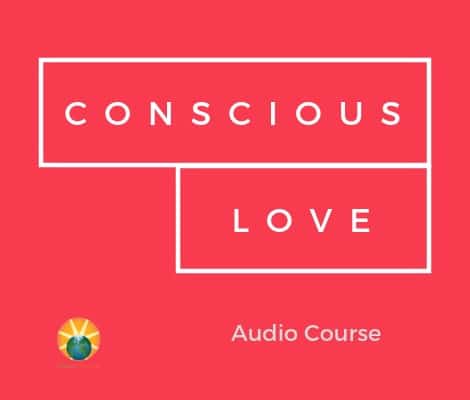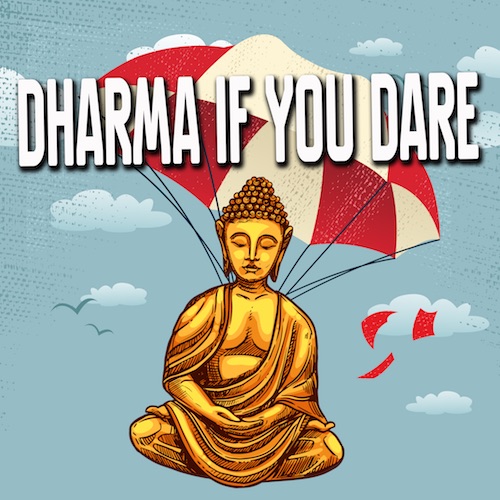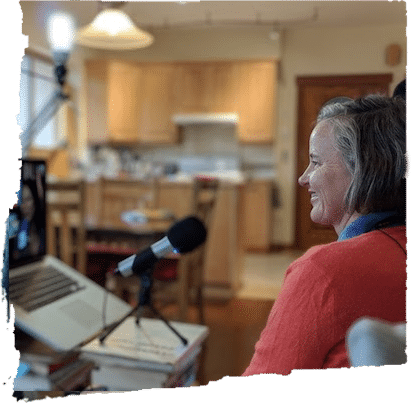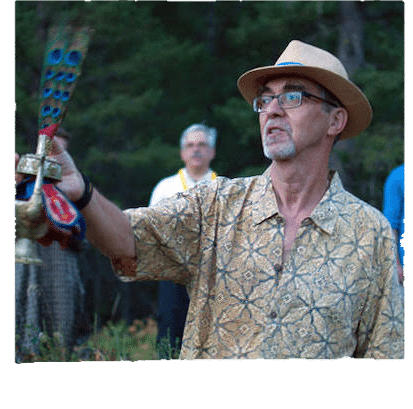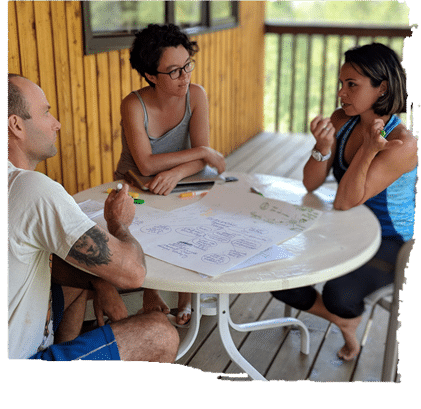Unconscious Forces in the Psyche:
Money, Sexuality & Control / Power
(And how to step back and enjoy the theater…)
May 24, 2020
by Qapel Doug Duncan & Catherine Pawasarat

Unconscious Forces in the Psyche: Money, Sexuality & Control/Power
There are very strong unconscious forces at work in our lives that affect our personalities. These forces, according to Abraham Maslow in what he terms the hierarchy of needs, are: survival, safety, a sense of love and belonging, self-esteem, and some form of spiritual actualization.
In our daily lives these needs manifest in different ways. For instance, survival is about resources, and our currency for looking after this need is typically money.
With regard to love and belonging, our need often starts with sex. After all, sex is where we all start, and as adults sex is also the beginning of the family many of us will create.
Power and control are aspects of both safety and self-esteem. These are measured by safety of our body and property, while our sense of confidence, respect, and achievement make us feel in control and powerful.
While these forces drive our lives, they often have unconscious aspects in their functioning. That’s why money, sex, and control are what we spend a good part of our day protecting and promoting.
When they are challenged or when we feel they are challenged, we can get feral with our reactions, opinions, and defenses. In fact, if we are challenged it often means we are unconscious about how these forces are manifesting—and thus we tend to be neurotic about that subject. So, to have healthy engagement in these areas, we must become more conscious about these three forces of money, sex, and control.


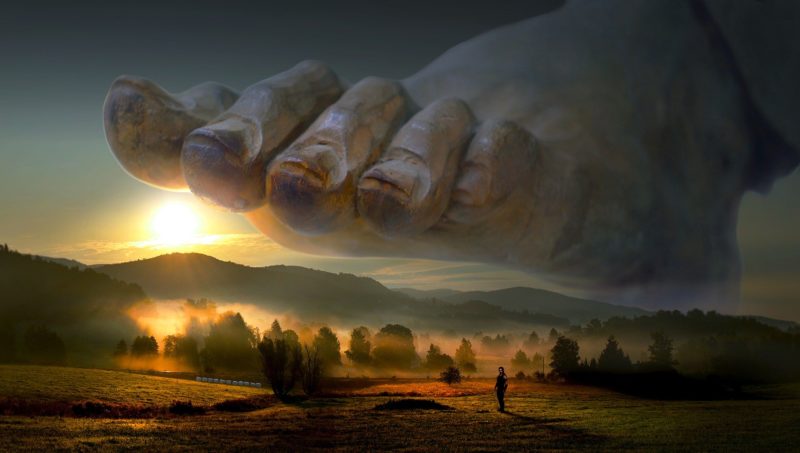
Why these three? Money says I’ve succeeded; sexual vibrancy means I’m wanted and desirable which feeds my self image; and power or control is about feeling self determined and independent. As far as we are unaware of these dynamics we act unconsciously, and unconscious behavior leads to very mixed results. We often end up in strange and uncomfortable situations and cause ourselves great suffering from this unconscious behavior.
For example, if we’re lucky and we get our self-image confirmed, we are happy. If, on the other hand, a perceived slight triggers a hurt feeling in us, it also uncovers an area of unconsciousness such as poor self-image, from which we can feel abused or mistreated. When this happens we usually blame our partner, friend, or boss/employees for being cruel or abusive, rather than being aware that the issue is often our insecurity.
To liberate ourselves from these hurts, which arise from the past or in the present, we need to make the unconscious conscious, as the first responsibility of adulthood and a primary facet of education. After all, people are trained for careers but typically don’t learn how to have healthy relationships to money, sex, and power, or to any of the other needs.
Looking at each of these three key areas in turn, this article seeks to bring more light to the unconscious forces behind our views and behaviors around money, sex, and power.
“If you think money by itself means success, just remember there are plenty of very wealthy people whose children want nothing to do with them...“
The Psyche and Money
As meditation teachers and counselors, we have found that people are far more willing to reveal the details of their sex lives than their economic situation. Obviously, as important as sex may seem to people, survival is foremost. In order to survive we need resources and the most common measure of that is money.
There are some strong archetypes about money that show up when we engage in the subject. Deborah Price describes them in her book Money Magic. There is the Warrior, who sets out to make it happen; the Fool who thinks money will just show up; the Martyr who works diligently for almost nothing; the Innocent who thinks someone else will take care of it for them; the Creator/Artist who feels they are above money; the Victim who blames their lack of money on someone else; the Magician who understands money and how to make it; and the Tyrant who needs to be in control of money for themselves and probably everyone else.
We each tend to manifest certain of these money archetypes more than others. It is unavoidable that, at any moment, we are manifesting one archetype in our attitude toward money. It is when we manifest the archetypes unconsciously that our relationship to money can be highly neurotic.
If we are unconscious of how to navigate and employ these archetypes, we feel dependent and vulnerable. Or, at the other end of the scale, we use money to control and direct—while seeing it as love. This is the personal level. But these archetypes function at the societal level as well. We may attribute more wisdom or success to a wealthy person than is deserved. We may attribute success in business as a measure of how we should run our communities. Not usually a good idea. We may just be supporting tyrants.
Money issues can function as poverty mindsets as well. We may feel life is unfair if we embody the martyr and refuse to see how we make it so, or play the innocent by hoping for a handout because we’re above money, thus revealing a sense of superiority that is rooted in conceit.
When we get more conscious around our money issues, we empower ourselves to more consciously affect and influence our lives and society, and be less prone to the ongoing dystopian malaise affecting the world today. It would also empower us to elect representatives that support a healthy relationship to money rather than people whose unhealthy relationship to money makes them rich, but the rest of their lives a mess. If you think money by itself means success, just remember there are plenty of very wealthy people whose children want nothing to do with them.
The Psyche and Sexuality
Another strong force in our psyche is our identity. A central force in determining our sense of self identity is our sexuality. While there are other measures of identity such as occupation, social networks, religion, age, race, nationality, and even hobbies, to name a few, sexuality comes closest to the bone. It is one of the first that arises as we get ready to leave our parents’ home and prepare to go out as independent adults.
Who we choose to sleep with, when, and under what circumstances tells us who we are, not only in context with others, but also about ourselves. Where I am in the alphabet spectrum (LGBTQ etc.) determines who my friends are and where I circulate in the social matrix.
As we age, our identities shift from being our parents’ children to who we are on our own. When we are prepubescent our concerns are often, “Who is my best friend?” “Do I fit in with my group?” “Am I popular?” As we get older and reach pubescence our identity gets more complicated; “Who do I have sex with and when?” “What are the terms and conditions of engagement?” “Which role model do I follow?” “Do I follow the church, my family, my favorite rock stars?” “Do I emulate what I see on platforms such as Netflix, or what is happening in my peer group, or on social media?”
Typically, we don’t take the time to think this through. Sexuality is a force of attraction. For many teens, long before we discover who and what we want to be, our sex drive is pushing us into bed with whomever attracts us.
Our social and cultural rules inform us in how this game of sex is to be played. How old you have to be, who you can have sex with and when, what is “normal” or “abnormal,” and what the agreements of engagement are; these are all things that are usually defined by the adults. But the sex drive itself couldn’t care less about this. It just wants its DOSE; that is dopamine, oxytocin, serotonin, and endorphins.
Our sex drive just wants what it wants, and as teenagers with an as yet undeveloped sense of who we are, we often let the sex drive determine the rules, or lack of rules. These unconsciously chosen rules partly define who we are.
While many of us adhere to some form of rules it is mostly to avoid conflict with our families or our peers. This can create an unbearable tension and anxiety and sometimes leads to questionable decisions and undesirable consequences. Not to mention that for many of us, at this age, our sex lives become our first big secret and where we are most likely to lie. In other words, our sexual signals, assumptions, and negotiations about what we expect in return for sex—these all begin to get driven into the unconscious.
Sexual Archetypes and Unconscious Patterning
Just as there are money archetypes, there are sexuality archetypes. While the following list is by no means exhaustive, we’ve named a few ourselves. The Seducer who promises, the Bacchanalian who devours, the Prince/ess Charming who dallies, the Family person who uses sex to build one, the Celibate who abstains, the Tourist who only visits occasionally and doesn’t go very deep so as to not get too close, the Tease who seems to promise but doesn’t deliver, The Loyalist who uses sex to find a partner, and the Illusive who engages but isn’t present.
In the same way that unconscious money patterns can wreak havoc in one’s life, so too can unconscious sex patterns lead to calamity and emotional devastation. In both these cases we can feel, “How did I get here, what happened?” The key element is the unconscious part.
How is it that we become unconscious about our sexual behavior? Simply put, society and therefore our parents have been raised and trained and threatened to behave in very clear and defined ways. Like us, they took on this programming mostly unconsciously. Their relationship, families, and careers depend upon living within certain bounds, and all of this is passed on to us directly. Typically, it is not a conscious process—it happens by osmosis.
And this sexual area is one place where guilt and shame can take hold in our society because Judeo/Christian/Islamic elites made unmanaged sex shameful as a way to control the population. Making sex conscious reveals the generally accepted view, as suggested by the pioneering researchers Masters and Johnson, that there is no normal in sexual behaviour.
“I want, I must be, in control.“

Psyche and Power
The third force in the psyche is control. Control is built, in part, around money and sex. When they are engaged with unconsciously we get strange behaviours, personally and collectively.
For instance, what we miss in all these unconscious patterns is that after the euphoric DOSE of chemicals that flood our bodies during the sexual act, and our grabbing for money to feel successful, we are left with the underlying core of sexuality and money, which is power and control – the third great force in our psyches. I want, I must be, in control.
When we have sex with someone, we feel powerful. For it to be good or to continue we need to keep feeling powerful. In any relationship, the power dynamic that works in sex, at least for a while, will eventually be the cause of fights and struggles. It is also why when we speak of sexual abuse (rape is a power crime not a sexual one) we are mostly talking about a power struggle that is unconscious.
Perhaps we would be better off in our sexual relationships to see our dialogue as trade negotiations. I will give you this, if you give me that. This is why our teacher called marriage, the enshrinement of sexual ownership, business as usual.
“Since women have basically been enslaved by men since the dawn of agriculture some 20,000 years ago who could blame them if they are not in a huge rush to proffer this respect just yet?“
Unconscious and Conscious Deals
Money is also power. Historically the male offered protection, resources (money etc.), and support (helping out with the kids etc.) in exchange for sexual exclusivity, domestic support, and praise (“you’re so wonderful”). When we are dating or in an as yet undefined relationship the power balance has yet to be determined. However, since for most this power balance negotiation is unconscious it often goes sideways.
When we “date” we are trying to lobby for our needs to be met. We present the best us we can muster and they do the same. Often this is wonderful because our secret drives are put on hold, sleeping in the unconscious. We “fall (asleep)” in love.
Only later do we get into our working selves, our ego, which has very strong opinions about almost everything. It is often the death of libido too, as the power struggle can slowly squelch the sex drive.
Perhaps the Me Too movement could be rendered redundant if we stopped treating children like children and started training them in real politic about money, sex, and power. In her book Passionate Enlightenment, Miranda Shaw educates us to the fact that all those male tantric gurus of the Buddhist past had female tantric gurus to practice with and who were the teachers of the males! The goal in those scenarios was not marriage, family, and fences, but ecstasy, bliss, and non-clinging clarity. Importantly, in order for the genders to meet in such a place of wonderment, the male needs to worship the female as a goddess. In return the female bestows her treasures from a seat of power and benevolence. Given the unequal field in terms of physical strength she can then feel safe, protected, and powerful and he can relax his testosterone driven power struggle for some real fun! And it is also important that the female respect the devotional offering of the male. Since women have basically been enslaved by men since the dawn of agriculture some 20,000 years ago who could blame them if they are not in a huge rush to proffer this respect just yet?
Everyone wants to feel they are in control of their lives. We don’t want anyone directing us or telling us where it’s at! But the truth of the matter is that unless we consciously see how we have been manipulated and controlled by our society and its cultural values through its agents, in our parents and church perhaps, we will act as “slaves” to those values. Remember when birth control was against the law? When homosexuality was a criminal offence? When a company engaging in false advertising used to damage its reputation severely, whereas nowadays it can be quickly forgotten or even expected?
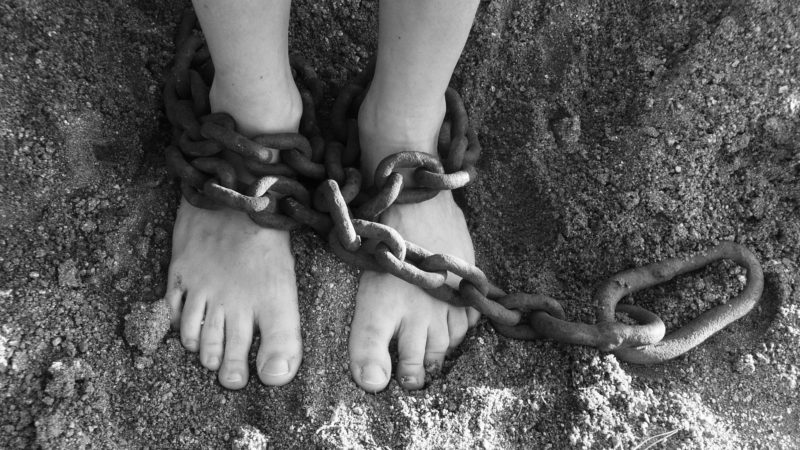
Our Two Choices – Manipulation or Control
There is no escaping that life functions through manipulation and control. We are always doing one or the other. We can also cooperate but we do this because it makes us feel good. And to feel good we must choose, even if we choose not to choose, which is another kind of choice. And choice is a form of manipulation or control.
So how we wield our individual power in life is demonstrated through our decisions around money and sex as well as career and relationships. The latter two, career and relationships, however tend to be downstream from the first two, money and sexuality.
We can see how the power issue shows up in our relationships when we hit snags or money issues arise. An elderly couple told me once that their biggest fights were – and fights are foremost about identity and protecting against feeling hurt – about money and how to raise the kids. We try to raise children in our image and if that image of ours has been built into our unconscious then we will do the same with our kids.


The ego seeks power because in truth it knows it doesn’t really have any, in the grand sense of the term. That is, “I’m under the illusion that power/control implies that I am independent” – in fact I’m not. We rely on people for our food, clothes, and for company to name a few. “I’m under the illusion that I can make my own decisions” – I can’t. There are so many rules and regulations these days we may soon need a license to breathe. “I’m under the illusion that I am permanent” – I’m not. Death will come and we will have no say in the matter. “And I’m also under the illusion that my mind is my own” – it isn’t. We can barely keep our attention on one thought or feeling for a few seconds and we don’t seem to have much control at all about which thought or feeling arises.
What Makes an Ego?
The ego is a construct, we could call it an app. The ego emerges as a synthesis of the complex data constantly presented to the mind, the OS of the organism, which we could call the hardware. This plethora of information, which arises in the mind, leads evolutionarily to the emergence of new patternings – namely, the ego, or sense of self. We call this accumulation of data in the app, “me”.
The ego’s job is to sort, classify, and analyze the data. The app is the current version of much older iterations (our parents), and these historic traces still determine how the app functions. Collectively, each “I” is a derivation of a previous “we” of the family, tribe, and society. Consequently, our sense of control and power which is held within the ego is programmed. So even when we rebel, it is in context of the existing program, rather than the transcendence of it.
Becoming conscious of the unconscious forces in our psyche lets us see how the play is staged, how the roles are written, how the characters are typecast. Then we have some freedom. If not to be too radically different (what could that look like?) but at least to know as Shakespeare said, “all the world’s a stage, and all the men and women merely players.”
Becoming conscious allows us to step back from simplistic views and conflicting emotions of the stage, and enjoy the play.
This article was written by Achariya Doug Duncan Sensei at Clear Sky Meditation Center, BC, May 25, 2020.
For additional reading see Enlightening the Shadow and Chakras.
Get the Free Money, Sex, Power Download
Make Money, Sex and Power more conscious with this free Reflection from our book Wasteland to Pureland: Reflections on the Path to Awakening. Join our awesome subscribers list and download it right away:
Can’t Get Enough Dharma? You’ll Enjoy These:
Find Us Here:
Search this Website:
The foundation of conscious community is conscious, loving relationships between individuals.
Your relationships can keep you spinning in the same cycles—or, like anything else, you can use them as a vehicle for liberation. And, you can choose to do this together.
We invite you to listen to our free audio course on Conscious Love and Relationships to gain insight into how to make all relationships more conscious, liberative, and aligned with your highest aspiration and values—whether it’s with partners, parents, coworkers, friends, roommates, or someone on the customer service line. Relationship is at the heart of being, and healthy and conscious relationship all begins with you.
Enter your details below to download the full Conscious Love audio course and subscribe to Planet Dharma. You’ll receive occasional articles, news and helpful Dharma material. (Don’t worry, we will be kind to your inbox!)
